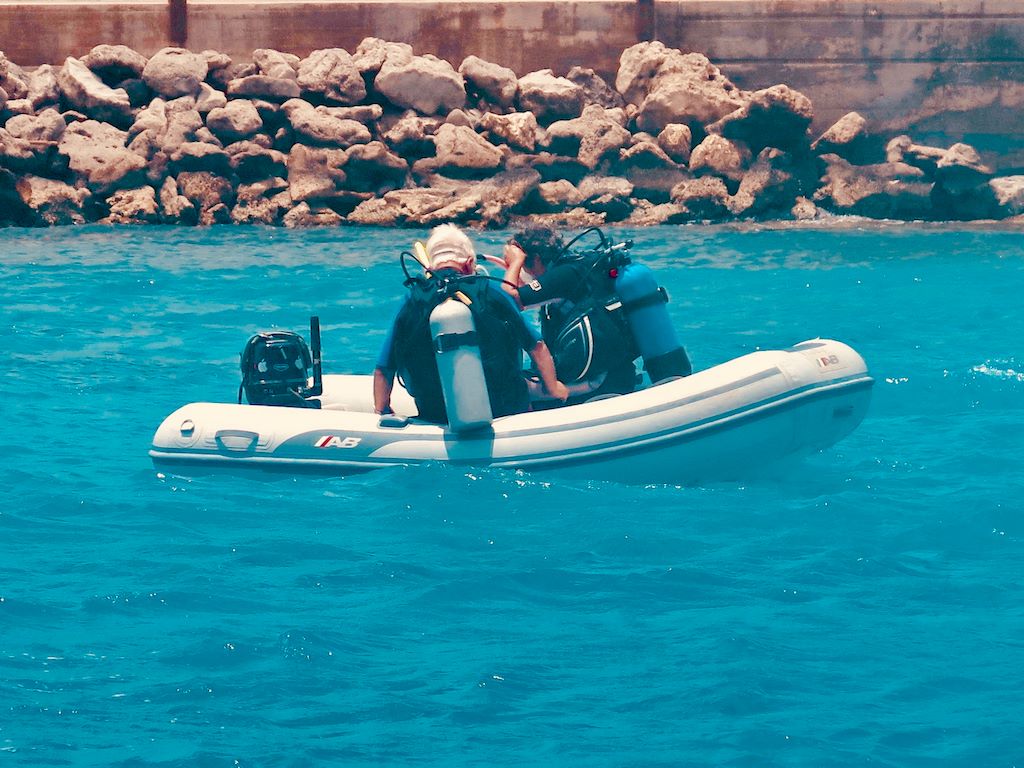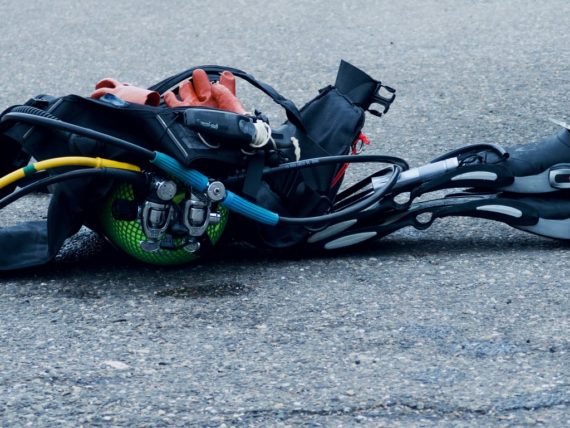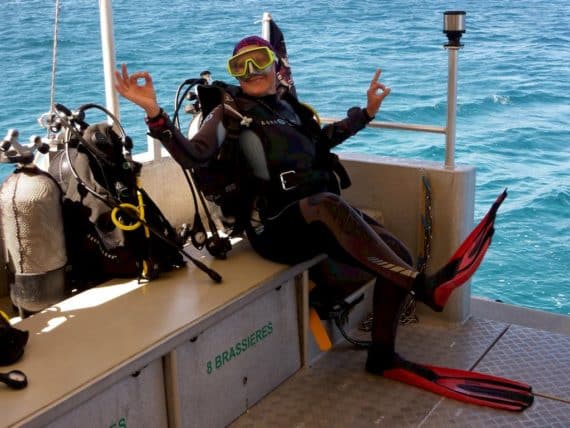Diving Training: These Exercises That You Should No Longer Learn or Teach Today
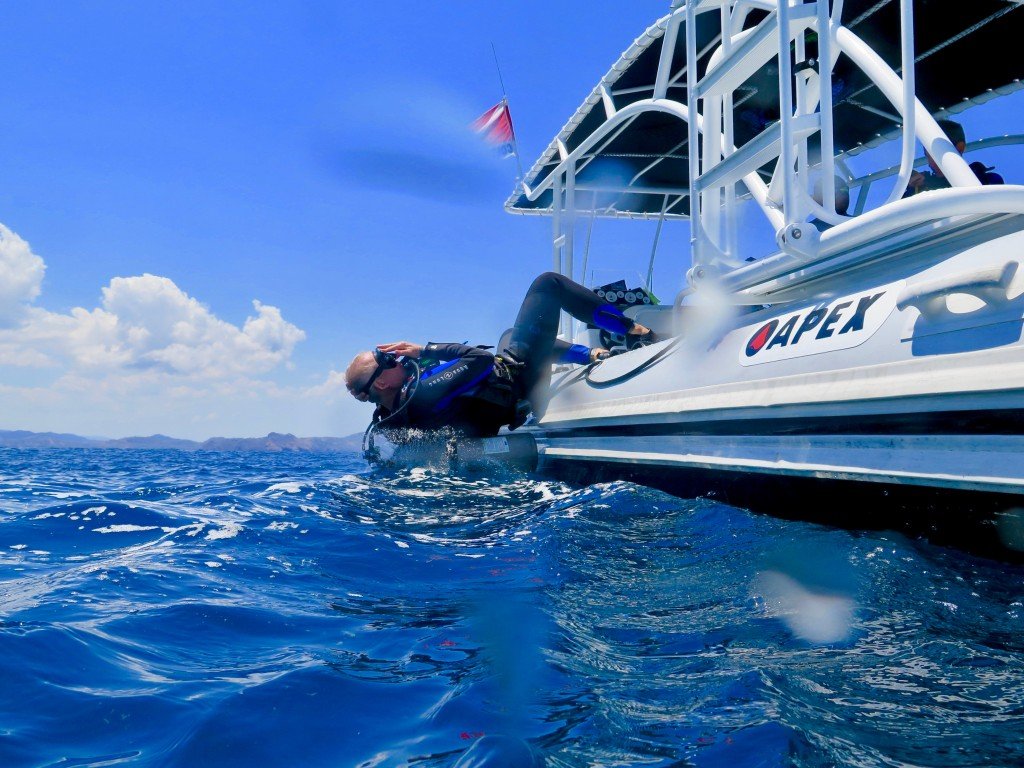
The world of scuba diving training is evolving and its teaching too … and this is good
While our knowledge of diving is better and the diving equipment incomparably more efficient and reliable. It is surprising to see that some exercises are still taught in recreational diving training.
At the risk of rushing those who remain attached to the old values. Attached to old practices they have always known. Here are three exercises that I consider obsolete with regard to today’s diving practices.
To ascent with no regulator in your mouth during your Diving training.
It is still a regular debate (but only in France) and I have never found an objective reason to advise you to learn it.
If the ascent without a regulator in your mouth has been removed by all training agencies and recognized as dangerous by the medical profession. In France it is still required to obtain level 4. A kind of Divemaster.
Some see it during your diving training as the only way to prepare for the management of running out of air. I can not help but think this as an exercise. dangerous. It is from another time when the equipment was rudimentary, dive plans less precise (there was no dive computer). But the physical condition of the divers very certainly well better than that of a part of the public of today’s divers.
At present it seems far more relevant to me during to teach the importance of the redundancy of the equipment. The planning of the dives and the respect of this one in particular through a complete and quality briefing.
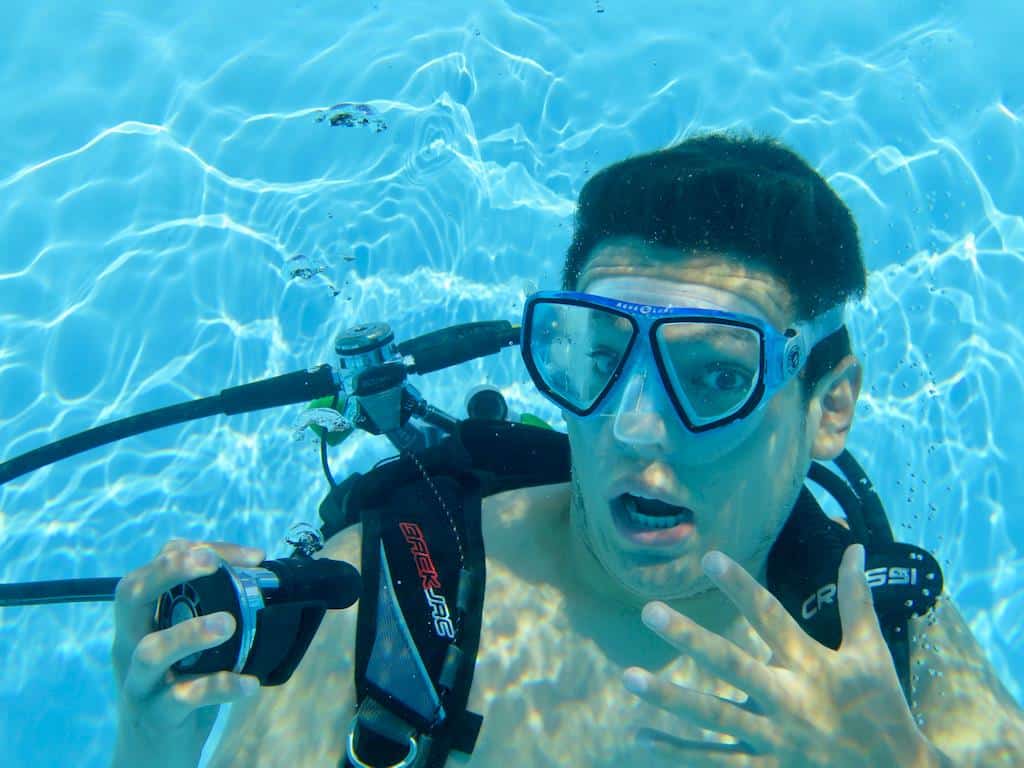
Entering the water face down.
Immersion technique consisting in lowering the head first from the very beginning of the dive. It is clear that in practice, divers do not use it during Diving training or later (or so little).
Very difficult to achieve (and quite useless and dangerous) for the divers in dry suit. The immersion by the technique of the duck has an advantage only for the divers very weakly weighted. (which will finish sometimes to hold their safety or mandatory stop with a lot of effort).
For others, I see no advantage. It is much more comfortable and safe, or even less stressful for some, to descend calmly head up feet down by emptying the air of BCD. In this way, no worries to clear the ears quickly. No worries to keep in view the members of the team (and therefore better reaction time in case of problems). Reduced risk of fear or panic. And this during your Diving training and later too.
Today, BCD are powerful. So it is better to put one or two extra kilos to ensure comfort. And inflate if necessary a little bit more the BCD.
I encourage you to read this article on weight to understand the importance of not being underweighted.
As a result, vertical immersion foot down will be much more comfortable. Don’t forget however to resume a horizontal position from immersion to avoid damaging the seabed.

Using tables as a decompression tool during the dive.
Much debate started in my article Why I decided to stop teaching the use of dive tables. The exercises on extending the tables as a means of decompression during dives are, in my opinion, useless for recreational diving. I personally have never seen anyone using tables at the end of the dive (thankfully!) to calculate a deco stop however the possibility still exist. And I smile when the divers say they never dive without their tables when they have no depth gauge nor diving watch. Of course, like all divers and recreational divers, they refer to their computers.
However, this old idea of tables during Diving training that would be “safer” is still circulating. And I’m sorry to read sometimes that rather than having a backup computer, many (too many?) divers still favor to have dive tables in their BCD (tables they NEVER use). But most of the time they don’t have a depth gauge and a watch with them.
Rather than a computer they use three accessories and thus multiply the risk of failure.
The argument invoked being often. And if my computer breaks down?
Without ever wondering about. And what if my watch or my depth gauge goes down?

This list of exercises you should not learn today is obviously not exhaustive. I am convinced that by thinking a little, you too will find examples of diving exercises that are no longer meaningful today.
Are you engaged in diving training? Do not hesitate to ask your instructors about the relevance of performing exercises that sometimes do not offer any more usefulness. And if you’re an instructor, there’s nothing stopping you from taking a step back from what you’re used to teach.
And above all … do not forget to be happy
Join my Facebook page for more sharing
Helene



